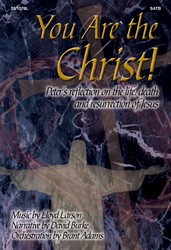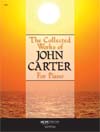- |
User Links
My Shepherd Will Supply My Need
Hymn Information
- First Line
- My Shepherd will supply my need
- Author
- Isaac Watts, 1674-1748 (1719, alt.)
- Tune Name
- RESIGNATION
- Harmonizer
- Dale Grotenhuis, 1931-2012
- Tune Source
- W. Walker's <i>Southern Harmony,</i> 1835
- Topic
- Grateful Living · Jesus Christ: Shepherd/Good Shepherd · Occasional Services: Funeral/Witness to the Resurrection · Spiritual Peace
Copyright Information
- Text Copyright
- Public Domain
- Tune Copyright
- Harm. © 1990 Dale Grotenhuis
- Reprint/Projection Information
- Words: The Words are in the Public Domain; you do not need permission to project or reprint the Words.
- Music: Please contact the copyright holder for permission.
Full Text
Scripture References
Further Reflections on Scripture References
Psalm 23 has inspired numerous paraphrases and hymn texts, including this text by Isaac Watts. Watts included it in his large 1719 collection of psalm paraphrases, The Psalms of David Imitated.
Psalter Hymnal Handbook
Confessions and Statements of Faith References
Further Reflections on Confessions and Statements of Faith References
This song expresses trust in the faithfulness of God who will care for us as a shepherd faithfully cares for his sheep. Heidelberg Catechism, Lord’s Day 1, Question and Answer 1 says, “He also watches over me in such a way that not a hair can fall from my head without the will of my Father in heaven; in fact all things must work together for my salvation.”
Additionally, Heidelberg Catechism, Lord’s Day 10, Question and Answer 28 says that the providence of God leads me to trust him fully, being “patient when things go against us, thankful when things go well, and for the future we can have good confidence in our faithful God and Father that nothing in creation will separate us from his love.”
Belgic Confession, Article 13 is clear to testify that he “watches over us with fatherly care,” and “in this thought we rest, knowing that God holds in check the devils and all our enemies, who cannot hurt us, without divine permission and will.”
My Shepherd Will Supply My Need
Additional Prayers
My Shepherd Will Supply My Need
Tune Information
- Name
- RESIGNATION
- Key
- C Major
- Meter
- 8.6.8.6 D


 My Starred Hymns
My Starred Hymns







